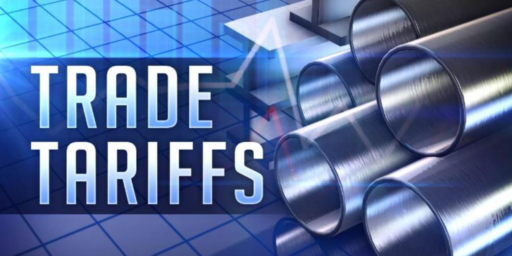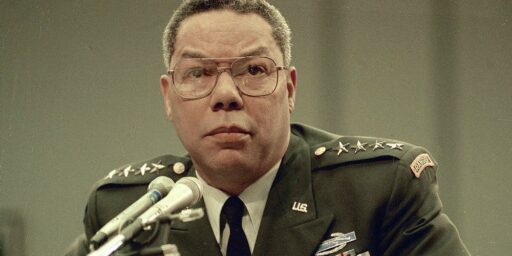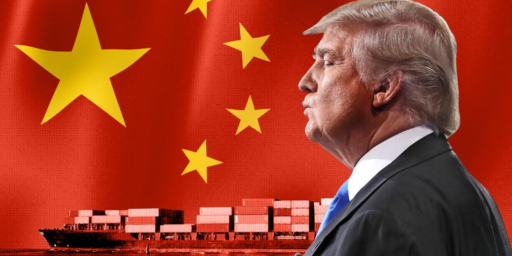New Fed Chair Overshadowed by Trade War Rhetoric
Speaking of trade war talk...
Via the NYT: More Jobs, Faster Growth and Now, the Threat of a Trade War
The threat of a trade war loomed over Jerome H. Powell’s inaugural speech as Federal Reserve chairman on Friday in Chicago, even as he tried to focus attention on the fundamental strength of the American economy. Financial markets fell Friday morning after President Trump’s latest salvo against China, then tumbled further after Mr. Powell indicated that the Fed saw no imminent need to adjust its outlook. The Standard & Poor’s 500-stock index ended the day down 2.2 percent, closing a turbulent week.
And there was uncertainty in Washington, where lawmakers, lobbyists and even White House officials struggled to discern how much of Mr. Trump’s move was policy and how much was bluster.
[…]
The Fed chief, who took his post in February, said it was “too early to say” what impact the dueling trade measures would have. “We don’t know the extent to which the tariffs will actually come into effect and, if so, how big will that effect be and what will the timing of it be,” Mr. Powell said. But he made it clear that the Fed would watch closely for any sign that the trade dispute was knocking the recovery off course.
The trade tensions complicate what was already a tricky task for the Fed. Hundreds of billions of dollars in tax cuts and spending increases risk fueling inflation, as do wage pressures from a robust labor market. The government’s monthly jobs report on Friday, while more subdued than in recent months, still pointed to a healthy employment picture.
Yet policymakers are wary of acting too aggressively to slow the economy at a time when wage growth has been tepid. The Fed’s response has been gradual interest-rate increases.
A trade war could act as a drag on economic growth, forcing the Fed to be even more cautious. But tariffs could also raise consumer prices by limiting cheap imports from China and other countries. That could increase the risk that the Fed will lift rates too quickly, choking off the recovery.
Details, details.




